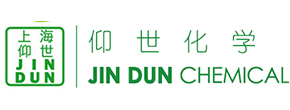110
Sodium Propionate: A Safe and Effective Food Preservative and Antifungal Agent
2023/5/12
Sodium propionate is a chemical compound that has the formula Na (C 2 H 5 C O O ). It is the sodium salt of propionic acid, which is an organic acid that is produced naturally in the body and in some foods. Sodium propionate is a white, crystalline solid that is soluble in water and has a faint acetic-butyric odor. Sodium propionate has various uses and benefits for food, health, and pharmacy. Here are some of them:
Sodium propionate is also used as a flavor enhancer and a leavening agent in some food products. Sodium propionate can enhance the sourness and saltiness of some foods, such as cheese, bread, and pickles. Sodium propionate can also act as a leavening agent by releasing carbon dioxide gas when heated, which can make baked goods rise and become light and fluffy.
Sodium propionate is considered safe and effective as a food preservative and additive. It has a low toxicity and does not accumulate in the body. It is metabolized by the body into carbon dioxide and water or excreted in the urine. The acceptable daily intake (ADI) of sodium propionate for humans is 25 mg/kg body weight per day.
Sodium propionate is usually applied topically to the affected area as a cream, ointment, lotion, spray, or powder. It is often combined with other antifungal agents, such as calcium propionate or zinc oxide, to enhance its effectiveness and prevent resistance. Sodium propionate is generally well tolerated and has few side effects when used as directed. However, some people may experience allergic reactions, such as rash, hives, swelling, or difficulty breathing. If this occurs, stop using sodium propionate and seek medical attention.
Sodium propionate may also have some benefits for oral health. Some studies have suggested that sodium propionate can inhibit the growth of dental plaque bacteria and prevent tooth decay and gum disease. Sodium propionate may also reduce bad breath by neutralizing volatile sulfur compounds that cause oral malodor.
Conclusion
Sodium propionate is a useful chemical compound that has various uses and benefits for food, health ,and pharmacy . It is a safe and effective food preservative that can prevent mold and bacterial growth in food products . It is also an antifungal agent that can treat skin infections caused by fungi . It may also have some benefits for oral health by inhibiting dental plaque bacteria and reducing bad breath . Sodium propionate is widely available and affordable ,and can be used for various purposes . However ,it should be used with caution and under medical supervision ,as it may cause allergic reactions or interact with other medications .
Uses and Benefits of Sodium Propionate for Food
Sodium propionate is widely used as a food preservative and is represented by the food labeling E number E281 in Europe. It is approved for use as a food additive in the EU, USA, Australia, and New Zealand. Sodium propionate can prevent the growth of mold and some bacteria in bakery products, cheese, meat products, salad dressings, sauces, and beverages. Sodium propionate can extend the shelf life and freshness of food products without affecting their flavor, color, or texture.Sodium propionate is also used as a flavor enhancer and a leavening agent in some food products. Sodium propionate can enhance the sourness and saltiness of some foods, such as cheese, bread, and pickles. Sodium propionate can also act as a leavening agent by releasing carbon dioxide gas when heated, which can make baked goods rise and become light and fluffy.
Sodium propionate is considered safe and effective as a food preservative and additive. It has a low toxicity and does not accumulate in the body. It is metabolized by the body into carbon dioxide and water or excreted in the urine. The acceptable daily intake (ADI) of sodium propionate for humans is 25 mg/kg body weight per day.
Uses and Benefits of Sodium Propionate for Health
Sodium propionate is also used as an antifungal agent for treating skin infections caused by fungi, such as ringworm, athlete’s foot, jock itch, and candidiasis. Sodium propionate can inhibit the growth and reproduction of fungi by interfering with their cell membrane function and energy production. Sodium propionate can also reduce the inflammation and itching associated with fungal infections.Sodium propionate is usually applied topically to the affected area as a cream, ointment, lotion, spray, or powder. It is often combined with other antifungal agents, such as calcium propionate or zinc oxide, to enhance its effectiveness and prevent resistance. Sodium propionate is generally well tolerated and has few side effects when used as directed. However, some people may experience allergic reactions, such as rash, hives, swelling, or difficulty breathing. If this occurs, stop using sodium propionate and seek medical attention.
Sodium propionate may also have some benefits for oral health. Some studies have suggested that sodium propionate can inhibit the growth of dental plaque bacteria and prevent tooth decay and gum disease. Sodium propionate may also reduce bad breath by neutralizing volatile sulfur compounds that cause oral malodor.
Conclusion
Sodium propionate is a useful chemical compound that has various uses and benefits for food, health ,and pharmacy . It is a safe and effective food preservative that can prevent mold and bacterial growth in food products . It is also an antifungal agent that can treat skin infections caused by fungi . It may also have some benefits for oral health by inhibiting dental plaque bacteria and reducing bad breath . Sodium propionate is widely available and affordable ,and can be used for various purposes . However ,it should be used with caution and under medical supervision ,as it may cause allergic reactions or interact with other medications .

